Two books used by two esteemed Classical scholars come back to St Andrews
Francis Pringle’s copy of Poetae minores Graeci (1635) and Robert Balfour’s copy of Juvenal’s Satires (1552)
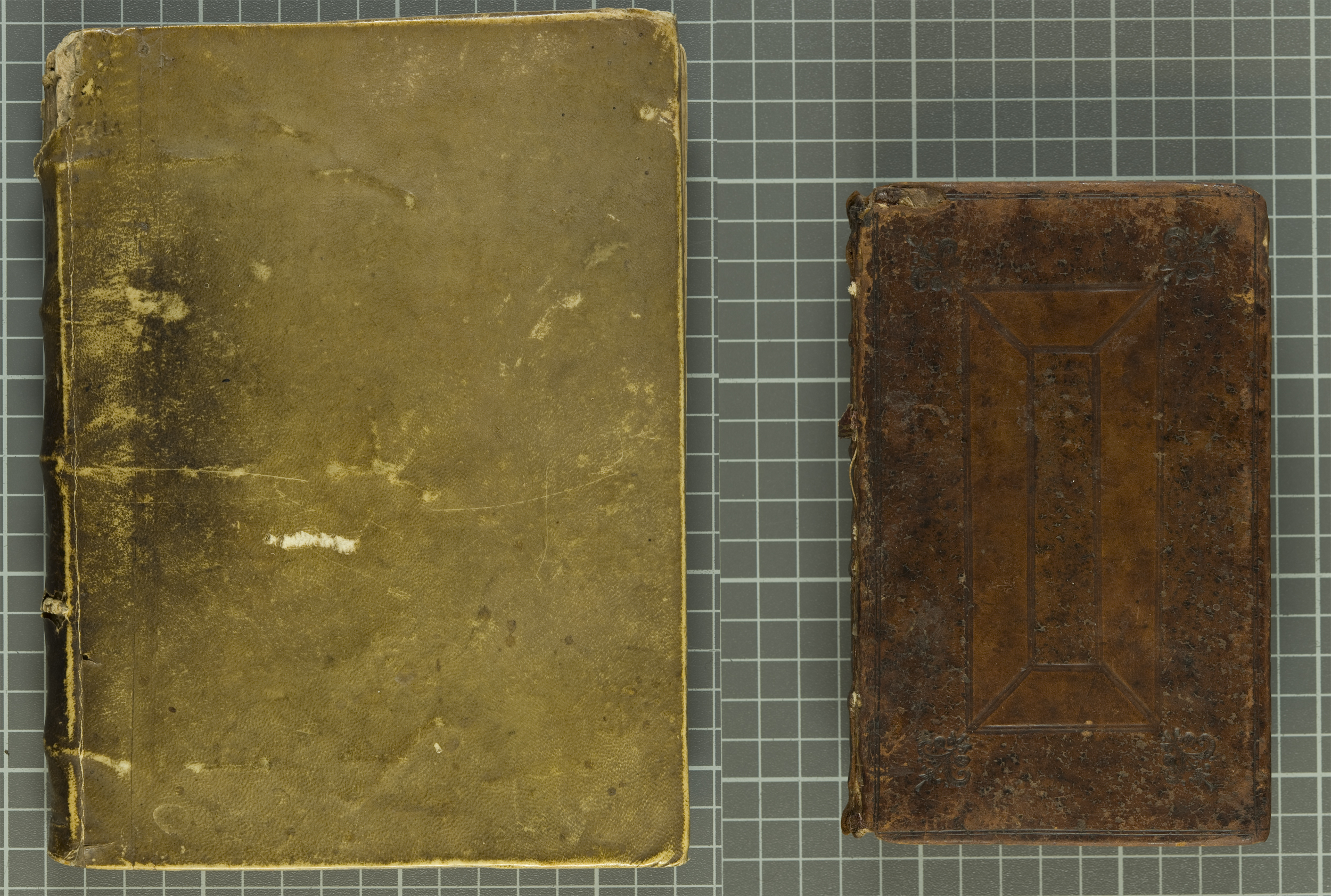
The University Library Department of Special Collections has recently acquired two books from the working libraries of two important Classicists working in the 16th, 17th and 18th centuries.
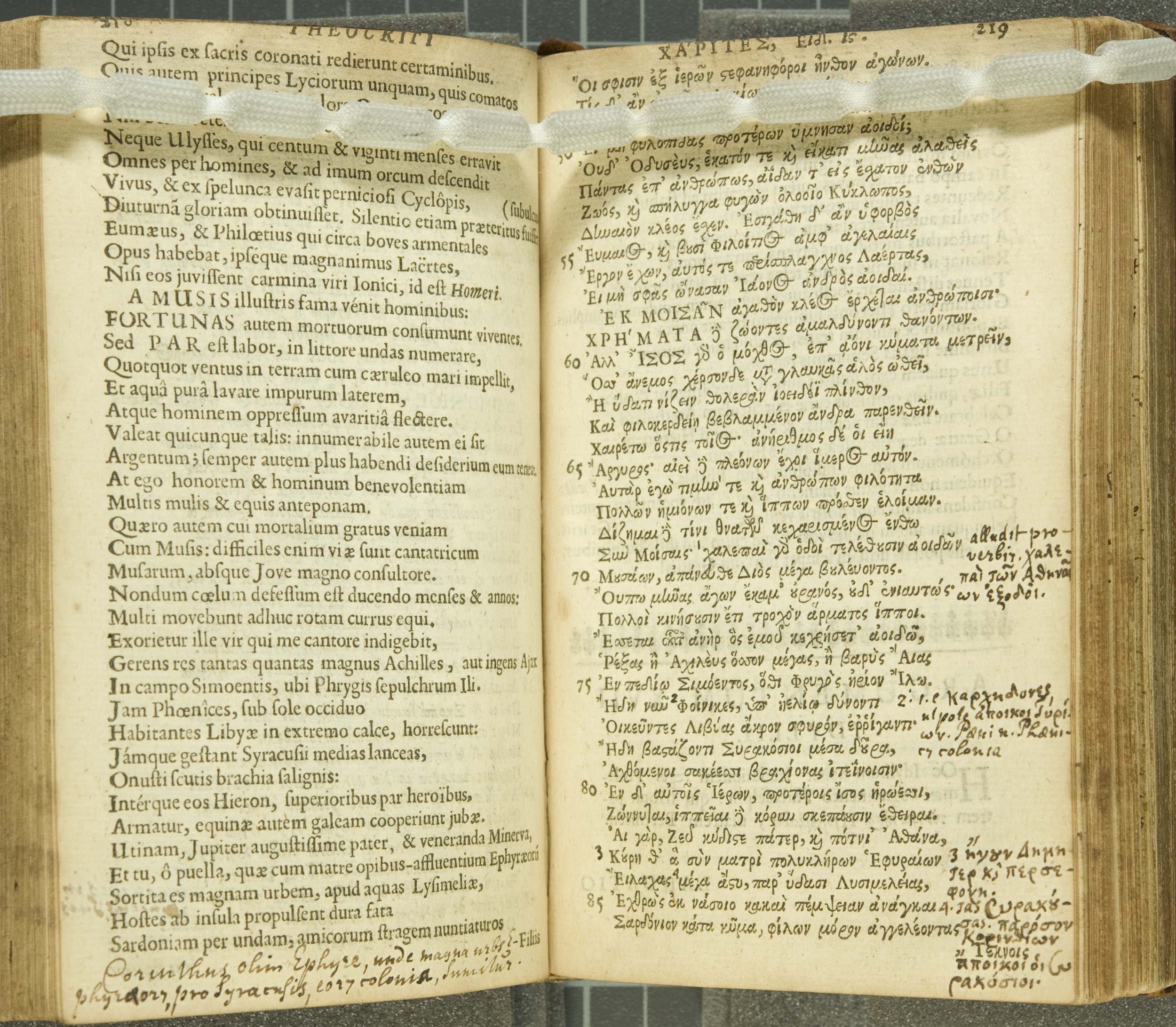
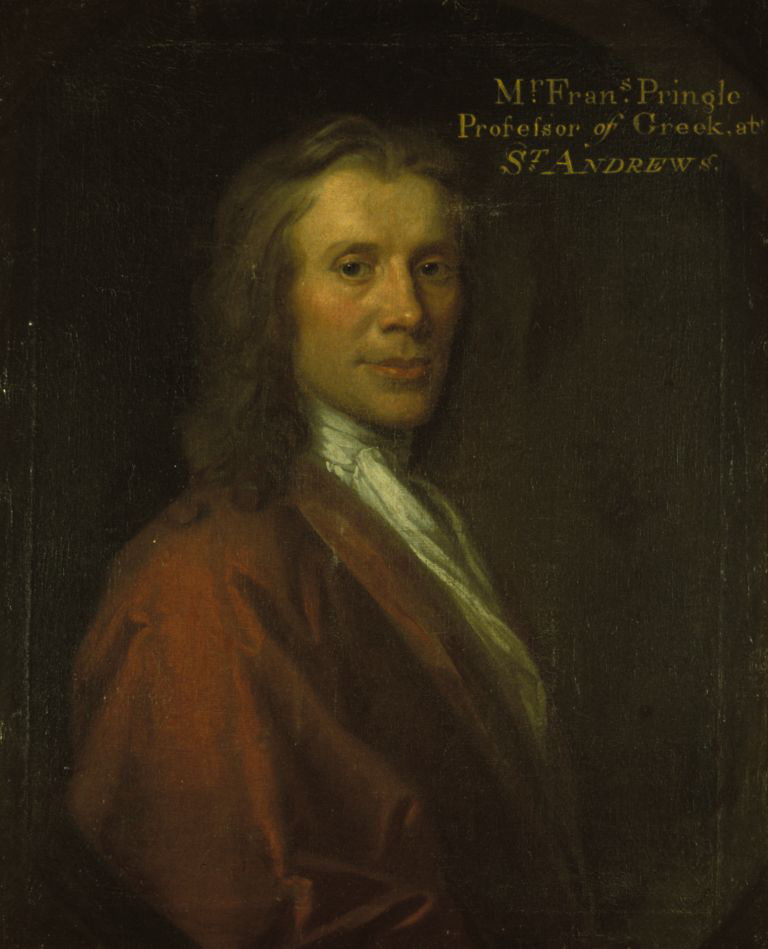
At the end of December, the Library purchased Francis Pringle’s copy of Ralph Winterton’s Poetae minores Graeci (Cambridge, 1635). This copy is full of marginal and interleaved annotations in Pringle’s hand (both in Greek and Latin) and will provide an excellent source for research into the history of the study of Classics. Pringle was educated in Edinburgh at the end of the 17th century and took the post of Professor of Philosophy at St Leonard’s College in 1699. He was later nominated as the first Professor of Greek at St Leonard’s in 1702 and remained a St Andrews man for the rest of his life (the University of Edinburgh tried on at least one occasion to attract Pringle away from St Andrews to no avail). Pringle was involved in all aspects of University life throughout his career, holding the position of quaestor for many years. This book found its way into Alexander Fraser Tytler, Lord Woodhouselee,’s collection after Pringle’s death. It’s great to think that this book probably left St Andrews after Pringle’s death in the 1740s and has now finally came back to St Andrews almost 300 years later. This new addition to the rare books collection complements the Department’s manuscript holdings which include Pringle’s commonplace book and Pringle’s collection of college papers.
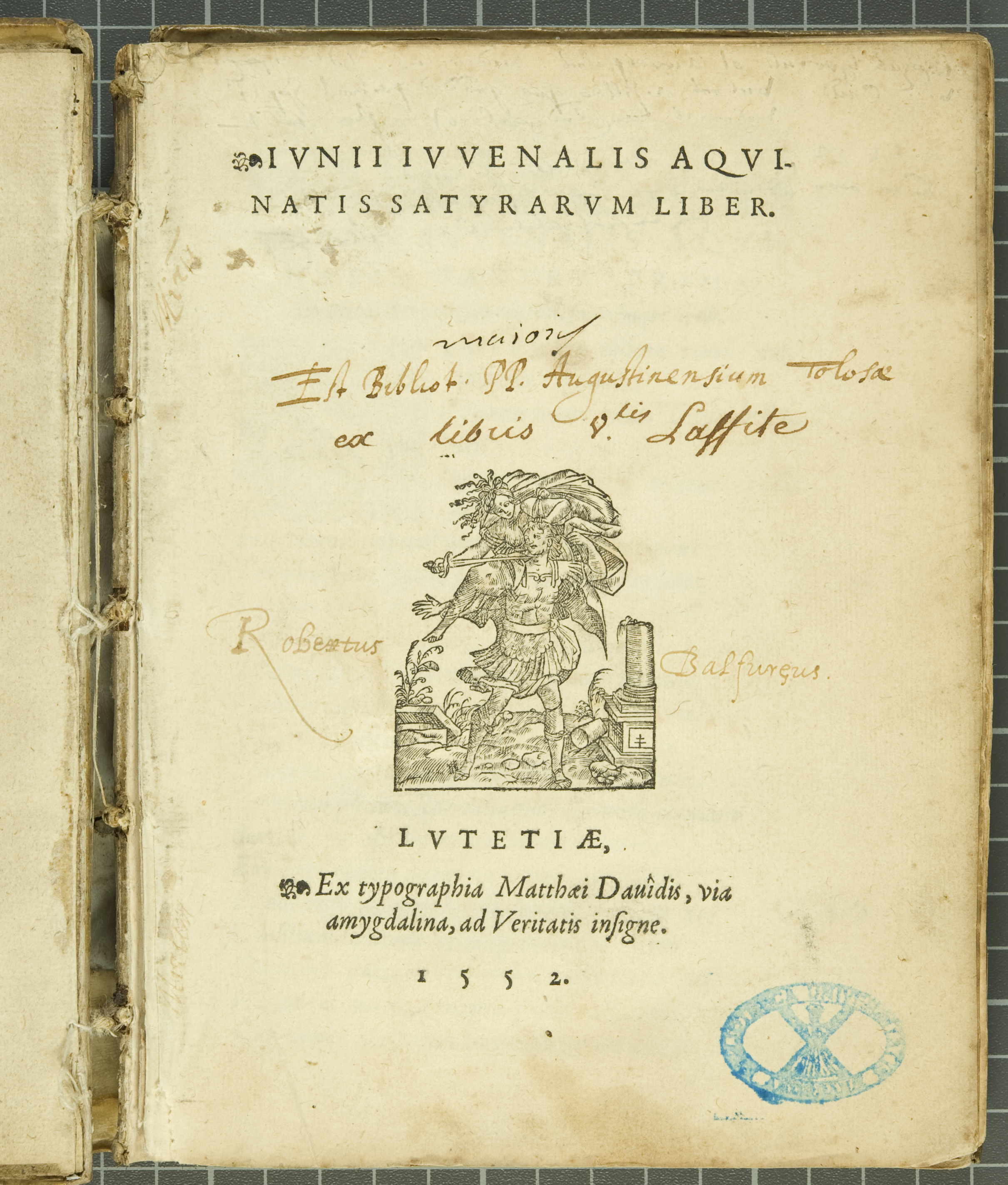
This month the Library managed to get a hold of 16th/17th century philosopher Robert Balfour’s copy of Juvenal’s Satires (Paris, 1552). Books from the libraries of 16th century Scottish philosophers are quite rare, and St Andrews is pleased to have been able to acquire this copy. Balfour was a student at St Andrews (matriculated in 1571, master in divinity at St Mary’s the year after) and spent a few years as a regent for the University directly following his studies. Balfour was an obvious intellectual star, as regentships during this period were only offered to intelligent graduates who had the ability to lecture on subjects across the entire curriculum, as they were responsible for tutoring and shepherding groups of incoming students. Balfour traveled to Paris and then Bordeaux by 1580 where began teaching Aristotelian philosophy at the Collège de Guyenne. He remained in Bordeaux for the rest of his life, becoming principal of the College in 1602 until 1621. Balfour was known to be highly skilled in Greek and Latin and also mathematics and astronomy. His copy Juvenal, now at St Andrews, retains its original vellum binding which shows considerable handling on the spine, a well-used copy. This copy also has late 16th or early 17th century annotations throughout, and some quite earthy verses in Latin inscribed at the end (pictured below)!
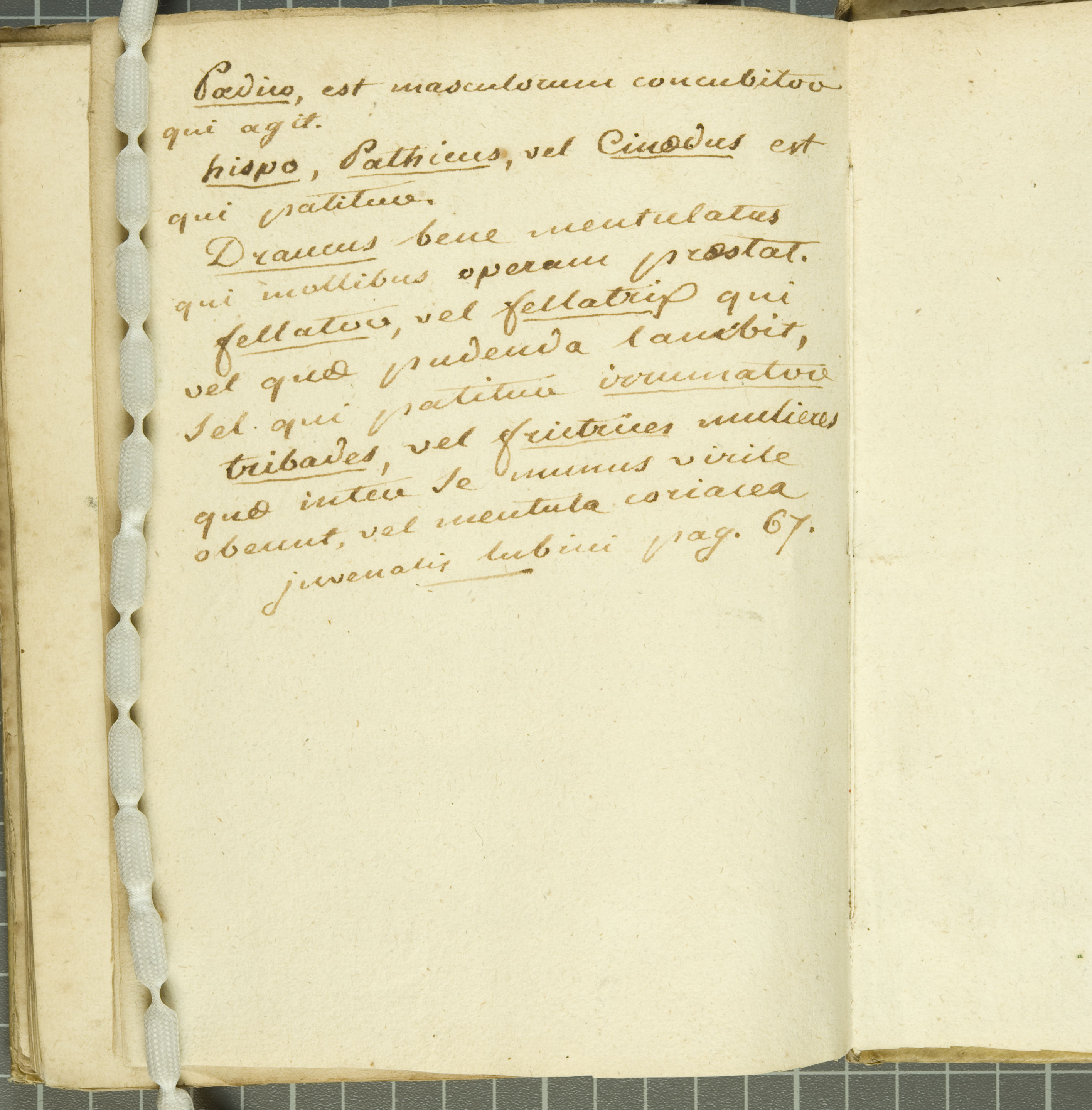
We hope that these two books will shed some light on the study of philosophy and Classics in St Andrews and abroad. These copies have now been added to the catalogue and are available for consultation in our reading room.
–DG
Fabulous additions to the collection. Well done.
Think we've just unearthed another book from Robert Balfour's library here at Regents' Park College!
Ooh! Exciting Anna! What book is it?
Commentarii linguae Graecae, Guilielmo Budaeo ... (Parisiis: Ex officina Roberti Stephani typographi Regii, M D XLVIII [1548]) T.p. signature is just 'R. Balfour', but given the age and subject matter, it seems a reasonable attribution. Later, it belonged to 2 Archbishops of Narbonne. Probably got to RPC in the late 19th or early 20th century.
excellent! Yes, it does seem likely due to the subject matter. Thanks for letting us know!